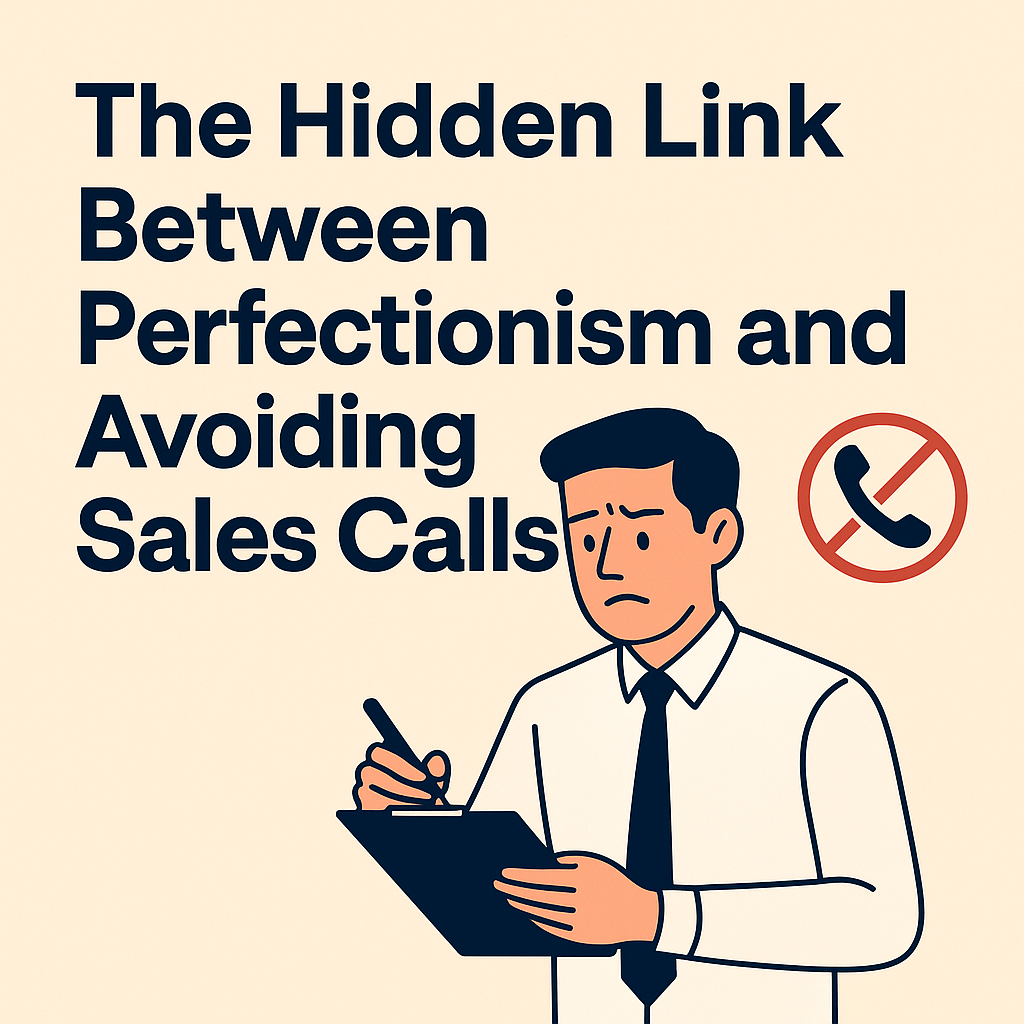The Hidden Link Between Perfectionism and Avoiding Sales Calls
What if the biggest threat to your sales numbers isn't fear of rejection, lack of skill, or poor training? What if it's perfectionism?
It may not seem obvious at first. After all, perfectionists often appear driven, disciplined, and motivated to do things right. But beneath the surface, perfectionism in sales can quietly sabotage performance, especially when it comes to making outbound calls.
Let’s explore how the perfectionist mindset becomes one of the most overlooked sales performance blockers and what you can do to overcome it.
Why Perfectionism Feels Productive (But Isn’t)
The perfectionist salesperson is rarely idle. They’re researching prospects, editing emails, tweaking talk tracks, and color-coding their CRM.
But here’s the catch: these tasks often serve as disguised avoidance.
When “getting it just right” becomes a prerequisite to making a call, outreach gets delayed. Or skipped. The pursuit of perfect prep replaces the imperfect but necessary act of picking up the phone.
Instead of helping, perfectionism becomes a mask for call reluctance.
Perfectionism in Sales: 3 Hidden Sabotage Patterns
1. Analysis Paralysis
Perfectionist salespeople often over-research and overthink. They worry about saying the wrong thing, missing a detail, or not knowing enough. The result? Calls get delayed until they feel “100% ready,” which rarely happens.
2. Fear of Looking Unpolished
High standards are one thing. But when a salesperson refuses to make a call unless they can guarantee flawless delivery, they start to stall. The fear of appearing unprepared or stumbling on a word becomes paralyzing.
3. Mistaking Planning for Progress
Strategic planning is essential in sales. But perfectionists often confuse busywork with momentum. Rewriting a cold call script five times isn’t the same as dialing five numbers.
Why This Matters for Sales Performance
Perfectionism doesn’t just delay action, it erodes confidence. Every day that passes without meaningful prospecting is a day where results lag, pipelines shrink, and self-doubt grows.
Even worse, many sales managers mistake perfectionism for discipline, rewarding the wrong behaviors while overlooking the deeper problem.
Breaking the Perfectionism: Call Reluctance Cycle
If you identify as a perfectionist salesperson, here are a few ways to shift your mindset:
Set “imperfect action” goals.
Aim for consistency, not flawlessness. For example, make five calls regardless of how polished your pitch feels.Use time limits.
Give yourself a hard stop for prep. When the clock hits zero, make the call, even if it feels uncomfortable.Track actions, not just outcomes.
Focusing only on closed deals rewards perfectionism. Instead, track daily dials and connections to celebrate momentum.Learn to tolerate discomfort.
Growth lives outside the comfort zone. That slightly awkward call? It may be the most productive thing you do all day.
Final Thoughts
Perfectionism in sales hides behind productivity. But left unchecked, it becomes a silent killer of performance. The more you wait for the perfect pitch, the more opportunities pass you by.
You don’t need to be perfect. You need to be in motion.
Want Help Turning Action Into Habit?
If perfectionism is holding you or your team back, you're not alone. At CallReluctance.com, we specialize in helping salespeople break through the invisible barriers that block performance.
It’s time to stop preparing and start connecting.

